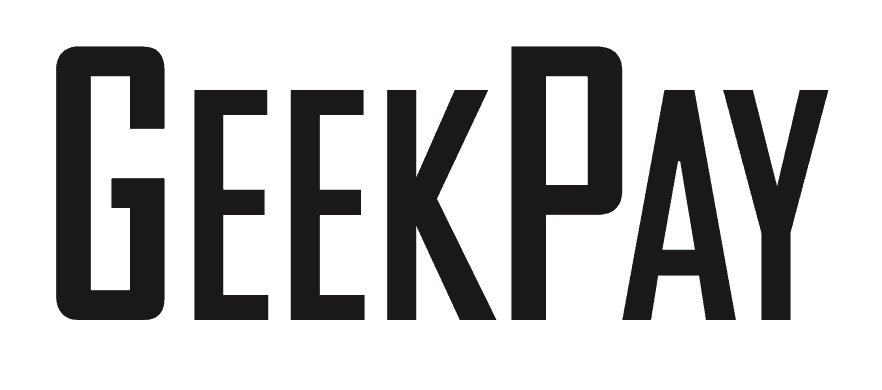Earlier this year, I was able to get a tour of a new loan servicing platform called GeekPay.
GeekPay is a cloud-based subscription software that recently came onto the market from fellow land investing educator – Mark Podolsky.
In my experience, the realm of payment collection for seller financed deals has always been a little harder than I thought it should be, so I was curious to see what new innovations this service would bring.

Check out this video walkthrough that Mark did with me earlier this year, and you'll get a better idea of how it all works…
Note: In order to get familiar with GeekPay, I was given free access to the website – but this blog post is not a paid endorsement, and I do not have an affiliate relationship with GeekPay on any level.
Update: As of September 2017 (a few months after recording this video), the pricing for GeekPay plans has been adjusted downward, as noted below.
As you can see, the site is pretty easy to use, and with their free help center – they seem to do a pretty good job of connecting the dots for people so they don't feel stuck anywhere in the process.
Practical Uses
The original intent behind GeekPay was to help simplify the process of collecting automated payments for seller-financed real estate deals (specifically, for land investors)… but this isn't the only audience that can put this service to use.
GeekPay could be a good fit for anyone who wants to automate payments and have transparency with their borrower(s). To name a few examples, any of the following uses could apply:
- Land Notes (Land Contracts, Deeds of Trust, Mortgages)
- Owner financing of any other real estate
- Multifamily Collections
- Auto Loans
- Private Money Loans
- Rich Uncle Lending
- Business Financing Loans
How Does GeekPay Compare?
From what I saw, GeekPay is similar in nature to another service called ZimpleMoney (which I reviewed a while back). However, there are some pretty significant differences between the two.
The most notable differences I noticed between the two are as follows…
- GeekPay has a much more user-friendly (and mobile responsive) design and layout.
- GeekPay requires a higher monthly cost for more than one loan but doesn't require setup fees for each new loan.
- GeekPay requires users to establish their own merchant accounts (which ultimately offers much more flexibility but also requires more steps, approvals, and costs for the user).
- ZimpleMoney has several plans that allow users to piggyback on their merchant account (which makes it simpler for lenders who don't want to maintain separate merchant accounts but also limits how they can collect payments).
- GeekPay offers more flexibility in terms of the payment methods that are accepted.
- GeekPay allows borrowers to add multiple sources of “backup” payment in case the primary method of payment fails.
When choosing between the two – the right answer is probably a combination of personal preference AND the extent to which you'll use the service.
From what I could see, ZimpleMoney may be easier to justify if you're receiving payments for a few loans at a time (because with additional no merchant accounts required, it's cheaper on a smaller scale). However, GeekPay seems to make more sense for someone who regularly extends more than just a few loans at a time because the system is more flexible, capable, and better designed (and on a larger scale, it will actually cost less money).
Justifying the Costs
When I look at a service like this, the first two questions that pop into my mind are…
- “How much does it cost?”
- “Is it worth the price?”
With GeekPay, there are two costs to be aware of:
- The cost of the merchant accounts you're using.
- The cost of using GeekPay itself.
Allow me to illustrate these costs using MYSELF as an example…
Currently, I have two merchant accounts – one with BluePay (for credit cards payments) and one with Actum (for ACH payments). Each account is costing me approximately $25 per month, which means regardless of how much I'm using each one, I am paying $50 each month just to keep these accounts open and available for use… and this is in addition to the cost of a GeekPay subscription.
The cost of GeekPay is currently:
- FREE for 1 loan
- $49/mo for 2 – 9 loans
- $149/mo for 10 – 49 loans
In order to determine whether it's worth the price, there are two important questions to answer:
- “How many loans will I be running through GeekPay?”
- “How much fee income will each of those loans produce each month?”
If I was charging each of my borrowers $15/mo as a servicing fee (on top of to their monthly P&I loan payments) and I had 7 paying borrowers on the books, this would generate $105 of fee income per month, which would cover the entire cost of using GeekPay AND my two merchant accounts.
Additionally, once I've got 14 loans on the books, this would generate $210 per month of fee income, which would cover GeekPay's highest pricing tier AND my both of my merchant accounts – so if you use the service and max it out to its full capacity (or if you charge even more than $15/mo as a servicing fee for each loan), the net cost for the convenience of this service can effectively be nothing – which is worth recognizing.
Understanding What Merchants Allow
Another thing to keep in mind with a service like GeekPay is that not all merchants are created equal.
Some merchants (particularly, the ones that credit card payments) have rules in place that clearly state you cannot use their platform for real estate transactions.
This is important to be aware of because it isn't GeekPay's responsibility to make sure you're using the right merchant accounts for the right purposes. It's your responsibility – so before you start using GeekPay, make sure you're fully aware of which types of transactions are (and aren't) allowed based on which merchants you're using.
Failing to follow these rules doesn't necessarily mean you'll get any transactions reversed or your account shut down… but it could. So be careful here.
Conclusion
You and I are very fortunate to do business in a time when we actually have options like this.
Not long ago, the concept of collecting automated payments online was unheard of. The fact that these kinds of services exist and are ready to use is pretty outstanding.
All-in-all, GeekPay seems to be one of the better options currently available for servicing loans in an automated fashion like this.
Assuming the cost of the service is mostly (if not fully) covered by the fees for your incoming payments, and if you verify that you're using the proper third party merchant accounts for the types of payments you're accepting – the system itself is the most capable and well-designed one I've seen to date for this kind of service.
The ability to calculate loan payments, maintain an up-to-date amortization schedule, automate the collection of these ongoing transactions AND handle the accounting is a pretty major help when you're trying to service loans on your own (especially when you have several recurring payments to keep track of each month).
Whether you decide to use it or not – GeekPay appears to be a pretty solid platform, and it's probably worth your consideration if/when the need for this type of service arises in your business.









